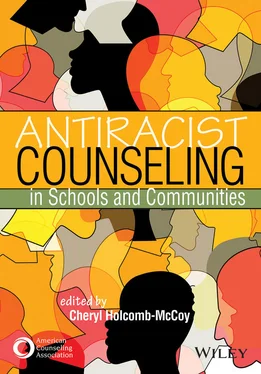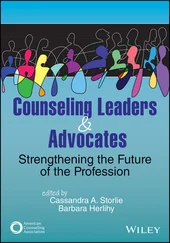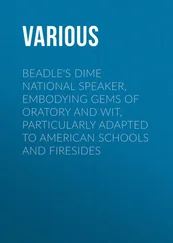1 ...7 8 9 11 12 13 ...21
Black/African-Centered Psychology
More than 40 years ago, White (1972) argued that the lived experiences of persons of African ancestry in the United States demanded a shift in conceptualizing psychology. With the assassination of Martin Luther King Jr. came an intense need to lift up the Black community and an affirmation of Blackness. This era heralded the beginning of the Black psychology movement, which solidified when the Association of Black Psychologists (ABPsi) was established in 1968 at the annual convention of the American Psychological Association. ABPsi emerged out of the American Psychological Association’s lack of responsiveness to the needs of Black psychologists and the communities they served. In the press release announcing its establishment, the need for a community-centered organization committed to ethnocentrism and the needs of Black people and Black psychologists was stated as the impetus for the new organization (Williams, 1974, pp. 11–12). See Box 1 for Black/African-centered psychology scholars in the field. ABPsi (2021) defined Black/African-centered psychology as follows:
It is the intention of the Committee to Advance African Psychology (CAAP) to establish a framework for content provided during the African Psychology Institute (API) that adheres to the values and principles expressed therein. In recognition of the diverse historical experiences and cultural expressions within and between peoples of African ancestry, the following is the accepted definition:
“Black/African Centered psychology is a dynamic manifestation of unifying African principles, values and traditions. It is the self-conscious “centering” of psychological analyses and applications in African realities, cultures, and epistemologies. Black/African centered psychology, as a system of thought and action, examines the processes that allow for the illumination and liberation of the Spirit. Relying on the principles of harmony within the universe as a natural order of existence, Black/African centered psychology recognizes: the Spirit that permeates everything that is; the notion that everything in the universe is interconnected; the value that the collective is the most salient element of existence; and the idea that communal self knowledge is the key to mental health. Black/African Centered psychology is ultimately concerned with understanding the systems of meaning of human beingness, the features of human functioning, and the restoration of normal/natural order to human development. As such, it is used to resolve personal and social problems and to promote optimal functioning.” (paras. 1–2)
Overall, the Black psychology movement was a period of academic progression in combining and applying Black studies with traditional psychological frameworks, encapsulating new approaches, terms, and structures for understanding Black people. Akbar (2004) described Black/African-centered psychology as follows:
[It] is not a thing, but a place—a view, a perspective, a way of observing. African Psychology does not claim to be an exclusive body of knowledge, though a body of knowledge will continue to be generated from the place. It is a perspective that is lodged in the historical importance of the human view from the land known as Africa. (p. ix)
In a special issue of the journal Cultural Diversity and Ethnic Minority Psychology , Holliday (2009) outlined the history of African Americans and Blacks in psychology in the United States. It is interesting that Holliday noted that in 1934, the Journal of Negro Education (published by Howard University) developed a special issue of 14 papers that challenged the functions and findings of research on racial differences.
Box 1 Scholars: Black/African-Centered Psychology
Na’im Akbar, PhD
Faye Belgrave, PhD
Kevin Cokley, PhD
Cheryl Grills, PhD
Asa Hilliard, PhD
Kobi Kambon, PhD
Linda James Myers, PhD
Wade Nobles, PhD
Joseph White, PhD
Robert Lee Williams, PhD
Cross-Cultural and Multicultural Counseling and Psychology
In 1982, Derald Wing Sue and six of his colleagues ignited the cross-cultural and multicultural counseling movement when they published the article “Position Paper: Cross-Cultural Counseling Competencies.” Sue et al. (1982) argued that traditional mental health practices (including counseling) and research were irrelevant to ethnic minorities. They proposed a push for new approaches to counseling that would be more appropriate for the culturally different. Sue et al.’s framework for cross-cultural counseling led to the triad of components of cultural competence: cultural knowledge, cultural awareness, and cross-cultural skills. A plethora of literature emerged from Sue et al.’s article. Pedersen (1990) even described the cross-cultural and multicultural counseling movement as the fourth force in counseling because of its rapid growth and visibility in the field.
In addition to components of cultural competence, the cross-cultural counseling movement focuses on studying similarities and differences in individual psychological functioning based on cultural and/or ethnic background. Scholars and researchers of cross-cultural counseling and multicultural counseling regard culture as essential to psychological functioning, an integral context for psychological development and behavior. Multicultural counseling specifically addresses factors within the counseling process when the client and counselor represent different cultures. This strengths-based approach considers the sociocultural factors that impact the client and counselor. The client’s and the counselor’s race and racism are considered, but the framework for multicultural and cross-cultural counseling is culture, not race. See Box 2 for cross-cultural scholars.
In 1972, another group formed specifically to address the issues of Black and Brown counselors and clients. The new group, the Association for Non-White Concerns in Personnel and Guidance, became a separate division of the American Personnel and Guidance Association, which is now the American Counseling Association (ACA). Before the group was formed, its members had limited representation and no voting rights on the board of directors of the American Personnel and Guidance Association. The individual most often identified as the father of the Association for Non-White Concerns in Personnel and Guidance is Samuel H. Johnson. The name of the group was changed to the Association for Multicultural Counseling and Development (AMCD) in 1985 to more accurately reflect its efforts. The mission of the association is
Box 2 Scholars: Cross-Cultural/Multicultural Counseling
Patricia Arredondo, PhD
Donald Atkinson, PhD
Robert Carter, PhD
Madonna Constantine, PhD
Michael D’Andrea, PhD
Donald Pope Davis, PhD
Janet Helms, PhD
Allen Ivey, PhD
Courtland Lee, PhD
Don C. Locke, PhD
Paul Pedersen, PhD
Joseph Ponterotto, PhD
Gargi Roysicar, PhD
Derald Wing Sue, PhD
Clemmont E. Vontress, PhD
[To] recognize the human diversity and multicultural nature of our society;
To enhance the development, human rights, and the psychological health of ethnic/racial populations and all people as critical to the social, educational, political, professional, and personal reform in the United States and globally;
To identify and work to eliminate conditions that create barriers to the individual development of marginalized populations;
To develop, implement, and/or foster interest in charitable, scientific, and educational programs designed to further the interests of marginalized populations;
To secure equality and access of treatment, advancement, qualifications, and status [for] individuals and families in counseling, wellness, and mental health work;
Читать дальше












